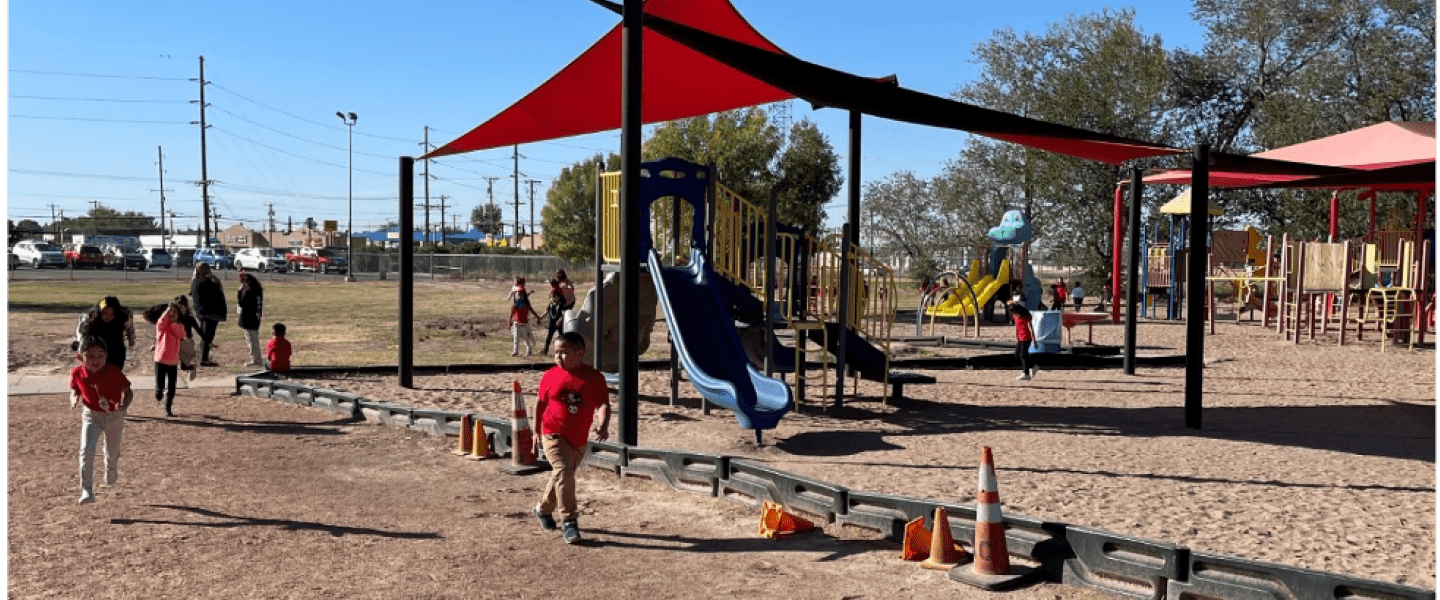
Marathon Kids Helps a Whole Community Commit to Healthy Habits
By Catherine Morris
As a Physical Education teacher, Valerie Derma believes in the power of students taking charge of setting their own physical activity goals and tracking their own progress.
“I wanted to become a coach because I love running and reaching personal milestones when I run,” she says, “so I wanted to transmit that same drive to my students. I wanted to find an innovative way for them to keep track of their progress and have self-accountability in their running and physical health.”
When a fellow coach in her district introduced her to Marathon Kids, Coach Derma knew she’d found the right program for her students at Campestre Elementary in Socorro, Texas. Marathon Kids challenges kids to run or walk four cumulative marathons over the course of a season, one step at a time. The program emphasizes making steady progress at your own pace and celebrating milestones along the way.
The Marathon Kids program is for all kids, of all backgrounds and abilities. All of these qualities matched what Derma was looking for on behalf of her students at Campestre—400 kids ranging from kindergartners through fifth-graders. Since they started Marathon Kids, her students have embraced the program. They have already covered over 1,800 miles together since the school year began.
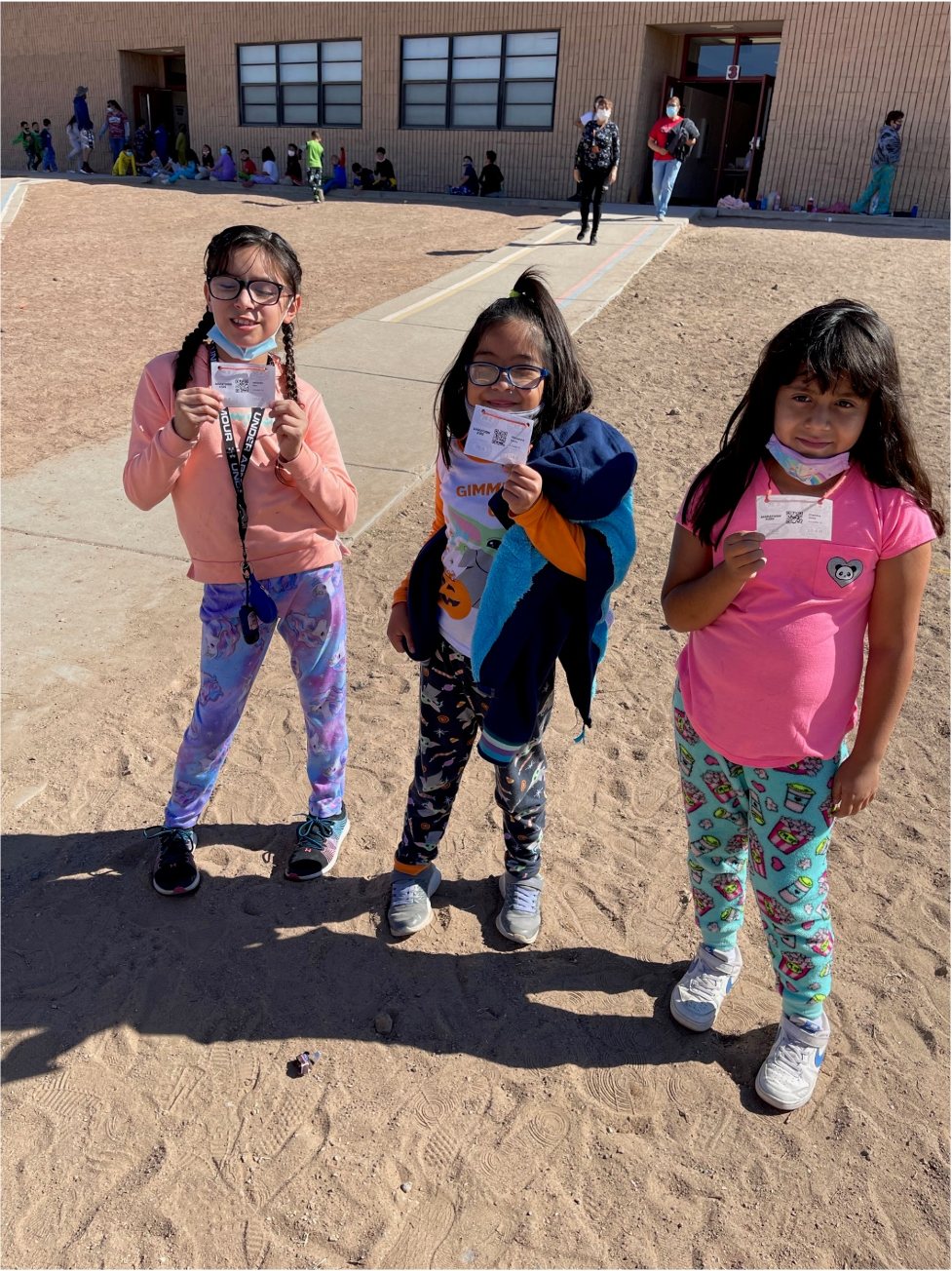
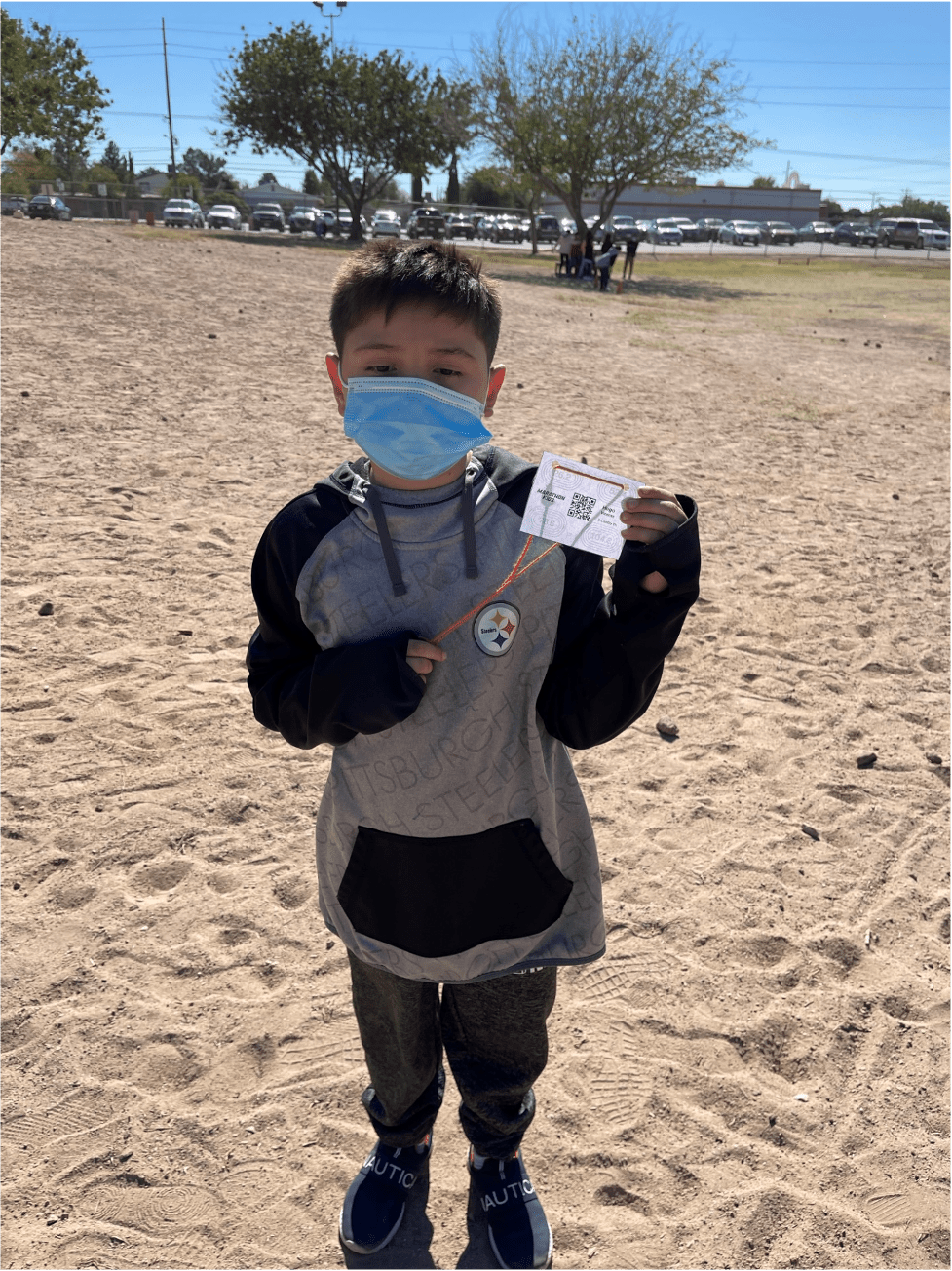
Marathon Kids Helps Kids Build Healthy Habits—and Reset When Necessary
Socorro is a small town southeast of El Paso. The majority of Coach Derma’s students are Hispanic, but the school has a diverse group of students from various ethnic backgrounds, including many students from the Tigua tribe.
“A great majority of my students are very active,” says Derma. “They love to run and love learning about new ways to stay healthy and make healthy choices.”
The Campestre Elementary community is close-knit and “very involved,” says Coach Derma. “We have a lot of parent volunteers, and lots of after-school events focused on health, like Wellness Wednesdays, where we invite family members of students to join their children in walking or running.”
Still, despite this community-wide positive attitude toward physical activity, the pandemic has taken a toll on the physical and mental health of many of Coach Derma’s students. “One of the challenges we’re facing this year is that students have unlearned a lot of the structure that comes with being in a school setting,” she says. After virtual learning, “coming back to an in-person setting was challenging for a lot of them.”
It was also a challenge to remind students of the importance of movement, Derma says, “and even just things like walking. Students came back out of shape and lacking energy. A lot of students gained weight [during virtual learning] and didn’t maintain the healthiest of habits.”
Fortunately, now that Derma’s students are back in school, they have started regaining the momentum they need to get back on track. “I’ve noticed, as the months have been going by, they’re looking forward to increasing their strength and endurance with the Marathon Kids program.”
“Ever since starting Marathon Kids, there’s been a shift in attitude from the students. On a weekly basis, they’re always asking, ‘Coach, is it Mile Monday?’ ‘Are we tracking our laps with our cards today?’ ‘How many laps or miles are we running this week?’ It has brought a sense of excitement around fitness and reaching new personal health goals.”
Physical Activity Improves Kids’ Health, Moods and Academics
Campestre Elementary’s mission is “to shape our students into future leaders who are respectful, honest and successful in all aspects of life, not just academically,” says Coach Derma. These goals dovetail with the Marathon Kids mission of helping kids build a foundation for a lifetime of good health. The evidence-based program draws on research showing how much kids benefit from daily physical activity in all areas of life, including their moods, behavior and academic performance.
“Ever since starting Marathon Kids,” Derma says, “there’s been a shift in attitude from the students. On a weekly basis, they’re always asking, ‘Coach, is it Mile Monday?’ ‘Are we tracking our laps with our cards today?’ ‘How many laps or miles are we running this week?’ It has brought a sense of excitement around fitness and reaching new personal health goals.”
The cards Derma refers to are her students’ Marathon Kids ID cards, which display personalized QR codes. During their weekly “Mile Monday” laps around the playground, the students scan their cards using the Marathon Kids Connect app, which Derma and her teacher’s aides have downloaded on their phones. Each time the students flash their cards at the screen, the app automatically logs their distances—no Wi-Fi needed.
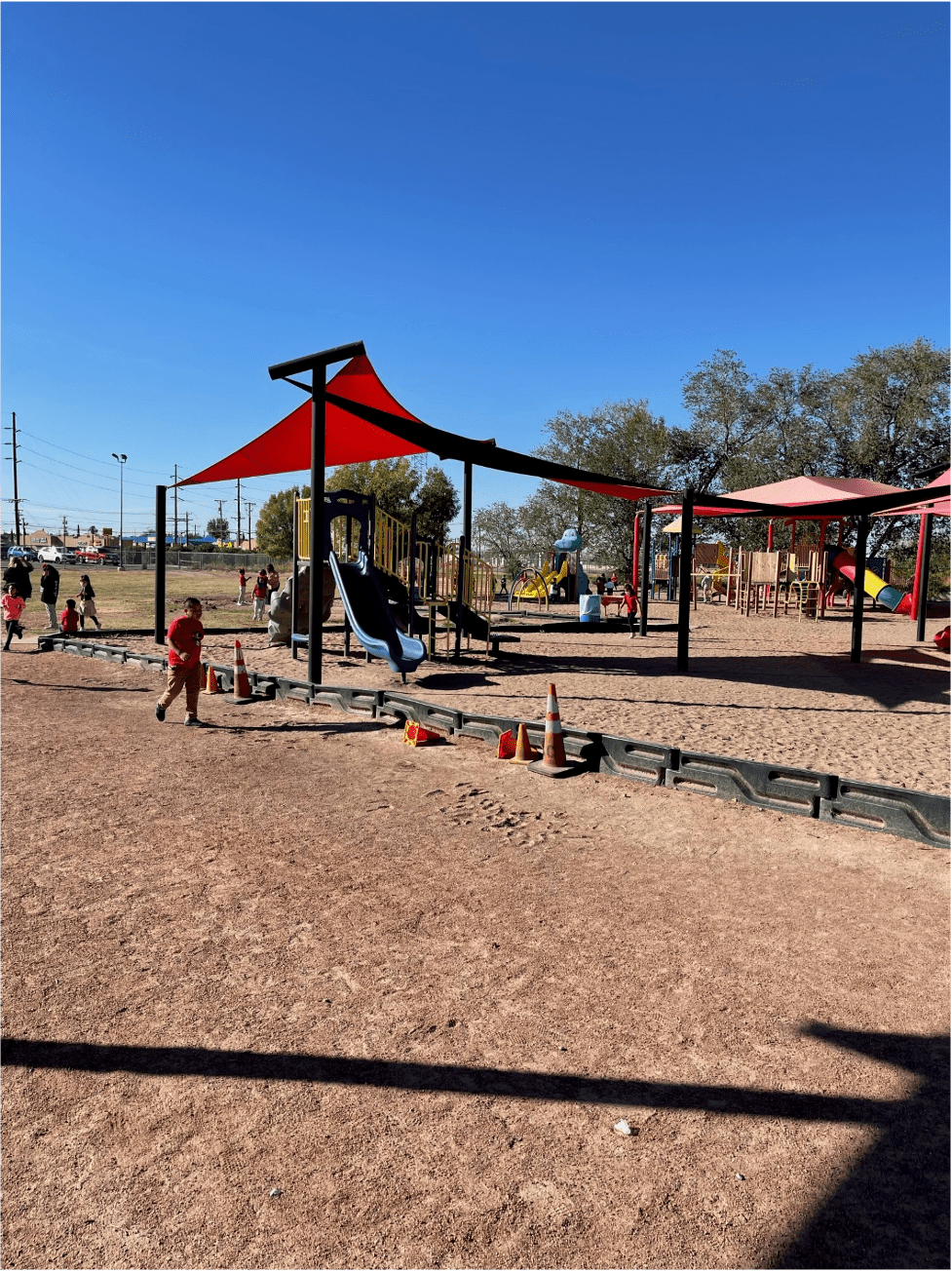
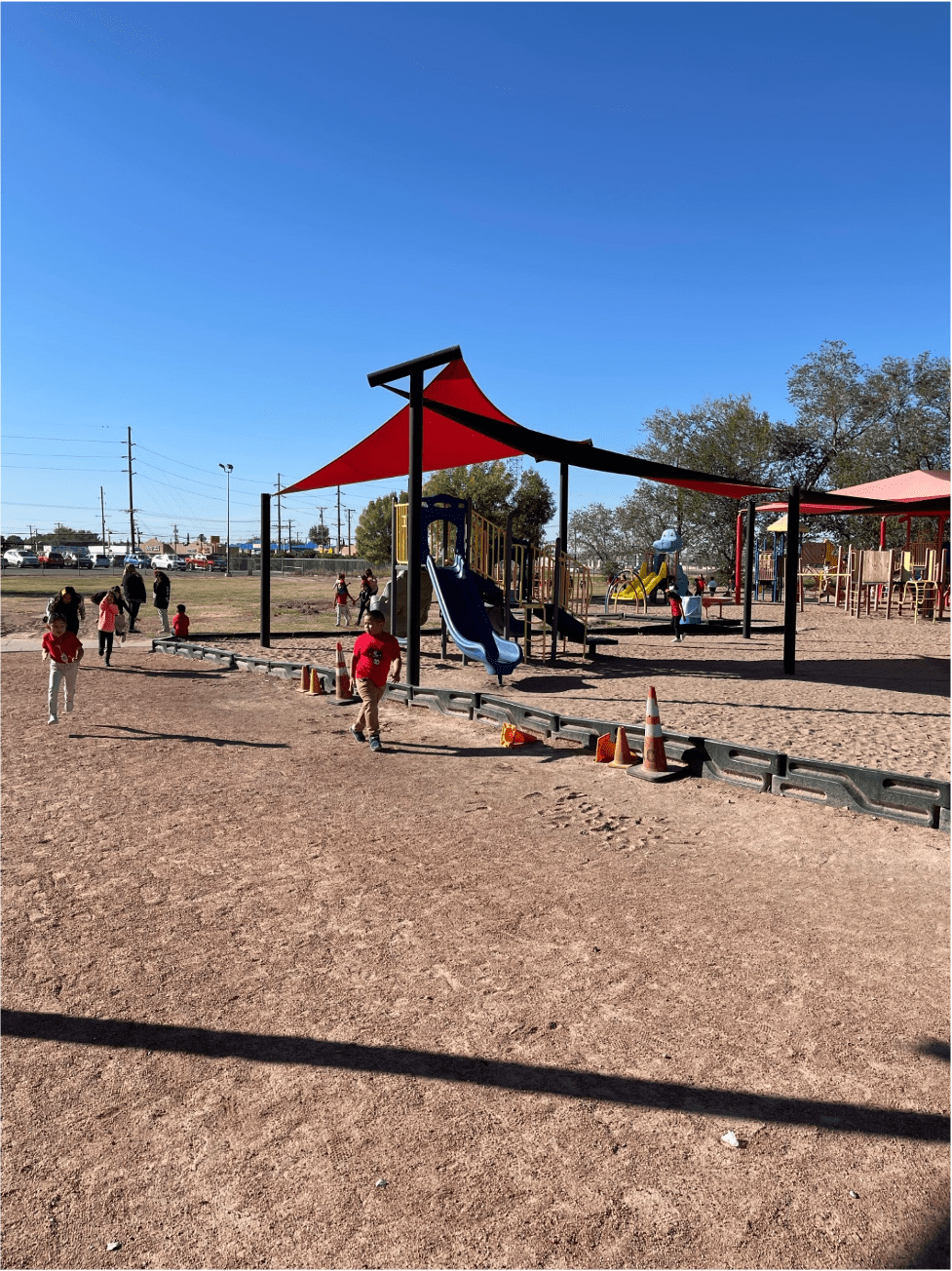
“Scanning their QR codes is a great way to hold the students accountable for completing and logging their miles,” Coach Derma says. “They can also get competitive with other grade levels and themselves.” Occasionally, she structures their active time differently and doesn’t use their ID cards. On those days, Derma says, “I like that I can go in and log their miles manually” using the app.
“Marathon Kids Connect also supports my P.E. program by giving me technology to incorporate in the classroom and relate it to the technological era the students are growing up in,” Derma says. “And it helps me celebrate my students by giving them incentives for the class or grade level that completes the most laps by the end of the year.”
Derma uses data from Marathon Kids Connect to keep track of her students’ cardiovascular endurance progress. The app also helps her with encouraging fitness outside the P.E. classroom. It even helps her with taking attendance.
Perhaps most importantly, the app and program help Derma instill self-accountability in her students. They love logging their laps, she says, “because they feel a sense of pride and accomplishment.” Marathon Kids taps into kids’ intrinsic motivation to move their bodies and keep challenging themselves to improve over time.
Marathon Kids Encourages Healthy Habits in Everyone, Not Just Kids
Coach Derma herself has recently improved her health and is “very passionate about healthy living in terms of healthy eating habits and exercising. Up until two years ago, I was severely overweight and not making the best choices in terms of what I ate. I used to really dislike running, but when I decided to change my health and life for the better, I became so passionate about it and the way it made me feel.”
During her school’s period of virtual learning, Derma lost 65 pounds. “When we came back to in-person learning, students were very shocked, and motivated and inspired that I changed my life into a healthier and more active one.”
Her healthy choices have also inspired the adults around her. “A couple of my co-workers have also said they were inspired and shocked by my weight loss, and have started their own healthy lifestyle journeys. I’ve seen other adults in my community start to jog, walk or run since I started this program, and started encouraging others in the physical education community to introduce Marathon Kids into their own schools.”
Charting Progress Increases Motivation to Continue Making Healthy Choices
Motivation can sometimes be an issue, even for people who love running and being active. Derma makes a point of running laps with her students, especially when they are having trouble self-motivating. “When the running gets tough,” she says, “my students slow themselves down to a more manageable pace. They start by running fast and racing against their friends, and then pace themselves to finish strongly and have time to recover.”
The best motivation comes from seeing that steady progress and improvement over time. “I’ve seen my students get faster” since starting Marathon Kids, Derma says. “More and more of them are completing more laps in the allotted time period. Instead of slowing down and taking the entire class period, most students are gaining speed and endurance. It’s amazing to see students who wouldn’t even run before gain the energy and motivation they didn’t use to have.”
Derma recalls one student in particular who has benefited from charting his own progress. “He has always struggled with his weight and disliked running or doing anything strenuous. Throughout these last couple of months since introducing the Marathon Kids program, this student has gradually gotten faster. He has been able to complete more laps than in previous years. He still struggles, and you can see his motivation falters from time to time, but by showing him his progression from the beginning of the year until now, it keeps him pushing to finish.”
For other educators interested in implementing Marathon Kids, Derma recommends doing a pre-assessment with students before starting the program and then following up with post-assessments later. The data from Marathon Kids Connect can be used to show progress and improvement and is useful for grading as well as sharing with school administrators.
But it also helps the students themselves. “You can see not just in person but through data if a student is gaining endurance and strength throughout the year,” Derma says. “It really does help them feel motivated.”
Give to coaches by giving to Marathon Kids.